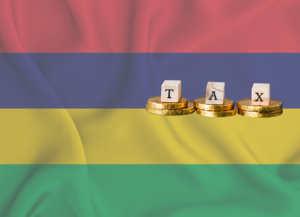Mauritius has long been recognised as an attractive destination for individuals and businesses due to its favourable tax regime, often earning the label of a Mauritius tax haven. Whether you are planning to move to Mauritius, set up a company, invest in property, work, or retire, understanding the Mauritius tax system is essential. This guide provides key information on taxation in Mauritius, especially for those considering relocating to the island.
Why is Mauritius Considered a Tax Haven?
While the term Mauritius tax haven is often used, Mauritius is not a tax-free jurisdiction. Instead, it offers a low and simplified tax system, making it a highly tax-efficient location.
- Low Corporate Tax Rate: The corporate tax in Mauritius is a flat 15% on profits and there is also a 2% CSR Levy and now a 2% CCR levy on income over MUR 50 million. There are many activities that could qualify for a corporate tax rate of 3%.
- No Capital Gains Tax: Mauritius does not tax capital appreciation.
- No Inheritance Tax: There is no estate or inheritance tax in Mauritius. Forced heirship rules do apply, however these are rarely an issue.
- No Withholding Tax on Dividends: Foreign investors benefit from zero withholding tax on dividends paid by a Mauritian company.
Becoming a Tax Resident in Mauritius
If you are planning to relocate, you may want to benefit from Mauritius tax residency. Here’s how you can qualify:

1. Stay for at least 183 days per year: If you are physically present in Mauritius for 183 days or more in a tax year (from July 1st to June 30th), you will be considered a tax resident.
2. Stay for 270 days over three years: If you spend at least 270 days in total over three consecutive tax years, you can also qualify for tax residency.
3. Domicile-Based Taxation: Individuals domiciled in Mauritius are tax residents unless their permanent home is elsewhere. This, however, only normally applies to Mauritian citizens.
Understanding Personal Income Tax in Mauritius
If you are a tax resident, you will be subject to income tax on your worldwide earnings insofar as they are remitted to Mauritius (i.e. received in or utilised in Mauritius). However, if you are a non-resident, you are only taxed on income sourced in Mauritius. Mauritius has a progressive income tax system ranging from 0% to 20%, depending on income levels.
| Taxable Income (Rs) | Tax Rate |
| 0 – 390,000 | 0% |
| 390,001 – 430,000 | 2% (Next Rs 40,000) |
| 430,001 – 470,000 | 4% (Next Rs 40,000) |
| 470,001 – 530,000 | 6% (Next Rs 60,000) |
| 530,001 – 590,000 | 8% (Next Rs 60,000) |
| 590,001 – 890,000 | 10% (Next Rs 300,000) |
| 890,001 – 1,190,000 | 12% (Next Rs 300,000) |
| 1,190,001 – 1,490,000 | 14% (Next Rs 300,000) |
| 1,490,001 – 1,890,000 | 16% (Next Rs 400,000) |
| 1,890,001 – 2,390,000 | 18% (Next Rs 500,000) |
| More than 2,390,000 | 20% |
Active vs Passive Income
There is a distinction between active and passive income:
- Active income (earned through employment or business activities) is taxable when remitted to Mauritius, unless the employment is physically exercised in Mauritius.
- Passive income (such as pensions, rent, and dividends) is not taxed in Mauritius if it is never brought into the country and does not concern Mauritian assets or accounts.
Corporate Tax in Mauritius
If you are planning to set up a company in Mauritius, understanding the Mauritius company tax system is crucial.

- The corporate tax rate in Mauritius is 15%.
- Partial Exemption for Global Business Companies (GBCs): Certain income streams, such as foreign dividends and interest, benefit from an 80% exemption, effectively reducing the tax rate to 3% on these income streams.
- Tax Treaties: Mauritius has double taxation agreements (DTAs) with over 46 countries, ensuring that your income is not taxed twice.
Taxation for Property Investors
Mauritius has a well-regulated property market that attracts international buyers. Key tax aspects for property investors include:
- No property tax on ownership.
- No capital gains tax on the resale of property.
- Rental Income Tax: If you earn rental income from Mauritian property, it is subject to 15% income tax.
Taxation for Remote Workers and Digital Nomads
With the rise of remote work, many professionals choose to live in Mauritius while working for companies abroad. Here’s what you should know:
- If your income is not sourced in Mauritius, you may not have to pay income tax here.
-
The Premium Visa is a specific type of visa geared towards remote workers and retirees. Under the Premium Visa, income earned while you work and live in Mauritius is not taxed in Mauritius, unless certain thresholds are met. This however excludes individuals who are employed by a Mauritian employer. Permanent establishment risks for the employer company is also “switched off” while in Mauritius on a Premium Visa.
Additional Tax Considerations
- Tax Residency Certificate (TRC): If you need to prove your tax residency in Mauritius to another country (e.g., for South Africa’s Tax Emigration Process), you may need to apply for a TRC from the Mauritius Revenue Authority (MRA).
- Tax Account Number (TAN): Once you become a tax resident, you will need a Tax Account Number to file tax returns.
- Double Taxation Agreements: If your home country has a tax treaty with Mauritius, you may be able to avoid paying taxes twice.
- Filing Taxes: The deadline to file individual tax returns is October 15th each year.
Frequently Asked Questions
What is the personal income tax rate in Mauritius?
Mauritius has a progressive income tax system ranging from 0% to 20%, depending on income levels.
How is foreign income taxed in Mauritius?
Foreign income is taxed only if it is remitted to Mauritius. Non-residents are taxed on income derived from sources within Mauritius.
How can I become a tax resident in Mauritius?
Foreigners become tax resident in Mauritius by staying 183 days or more in a tax year or 270 days over three consecutive years.
Conclusion
Mauritius offers a simple, business-friendly tax system that attracts investors, entrepreneurs, remote workers, and retirees. At TBI Mauritius, we assist clients with relocation, company formation, property investment, and permit applications.
While Mauritius provides numerous tax benefits, it is important to carefully consider tax residency rules and international tax obligations. We are not tax experts, and we recommend consulting a qualified tax professional to help you optimise your tax position and ensure compliance. The MRA website can be a useful resource for detailed information.
What TBI Business Advisors can do for you:
- We will have a Zoom/ Teams call or email exchange to understand your requirements.
- We can assist with the finding and purchasing of property, and setting up of an entity to purchase through.
- TBI will advise on the appropriate permit or visa for moving to Mauritius.
- We will send a detailed proposal with clear costs, timeframes and explanations.
- We will assemble the documents and make the application on your behalf.
- If you need assistance with setting up companies whether as an investor or just creating a business here.
- We can assist with relocation tasks such as helping with schools, accommodation, insurance, choosing locations.
- The directors can act as Commissioner for Oaths.
- We can assist with other business advice and can bring in law firms as and when required.
Please contact us via our website, via email to info@tbimauritius.com or via the form below.
While every effort is made to ensure that the information given is accurate, the information on this site does not contain legal, tax or any other professional advice. We accept no responsibility or liability due to any information or representation, whether accurate or not, relied upon in the contents. It is an information guide to provide the reader with a useful general, but basic understanding of the different considerations. You must seek local legal, tax or other professional advice before relying on the contents of this site.


 Management Company in Mauritius
Management Company in Mauritius Responsiveness
Responsiveness













